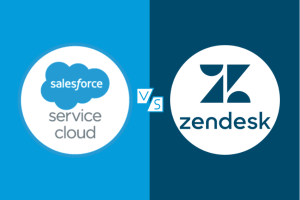Preparing for the postpartum period is essential to ensure a smooth transition and optimal care for both the mother and the newborn.
Welcoming a new baby into the world is undoubtedly an incredible experience. Amidst the joy and excitement, it’s essential to remember that the postpartum period is a significant phase that requires careful preparation. As a new mom, your body will undergo numerous changes, and you’ll need to prioritize self-care to ensure a smooth transition into motherhood.

8 Steps to Prepare for Postpartum
In this blog, we’ll explore eight essential steps to prepare for postpartum, including the importance of moisture-wicking underwear. So, let’s dive in and discover how you can make this transformative time as comfortable and enjoyable as possible.
1. Gather Your Postpartum Essentials
Before your little one arrives, it’s crucial to assemble a comprehensive list of postpartum essentials. These items will help you navigate the physical and emotional challenges that come with the postpartum period. Some must-haves include comfortable and loose-fitting clothing, breast pads for nursing moms, nipple cream to soothe soreness, maternity pads or adult diapers for post-birth bleeding, and a perineal spray or cooling gel pads for soothing relief. You may also want to invest in some blackout curtains, some of your favorite music, some audiobooks, and even a few movies. You may find yourself sitting down more often for the first few weeks, so having something to keep your mind engaged can be calming.
2. Create a Postpartum Recovery Space
Designating a cozy postpartum recovery space can work wonders for your well-being. Choose a corner of your home where you can retreat and find solace during those initial weeks. Consider including a comfortable chair, a nursing pillow, and a small table to keep essentials within reach. Add soft lighting and calming decorations to create a serene atmosphere that promotes relaxation and healing.
3. Invest in Moisture-Wicking Underwear
During the postpartum period, your body undergoes significant changes, including increased vaginal discharge. This discharge, known as lochia, can cause discomfort and dampness. Investing in moisture wicking underwear can help you stay comfortable and fresh throughout the day. These specialized undergarments are designed to wick away moisture, prevent chafing, and promote airflow, ensuring optimal hygiene and comfort.
4. Stock Your Pantry with Nutritious Foods
Maintaining a healthy diet during the postpartum period is essential for your recovery and overall well-being. Stock your pantry and refrigerator with nourishing foods rich in vitamins, minerals, and antioxidants. Incorporate plenty of fruits, vegetables, lean proteins, whole grains, and healthy fats into your meals. Additionally, stay hydrated by drinking ample amounts of water throughout the day. You can even set up a meal list for your friends and family members to deliver food to you during the first few weeks after you have your baby.
5. Set Realistic Expectations
Motherhood is a beautiful and fulfilling journey, but it’s essential to set realistic expectations for yourself. Understand that it’s normal to feel overwhelmed, tired, and emotional during the postpartum period. Remember that it takes time to adjust to your new role as a mom, and it’s okay to ask for help when needed. Embrace the challenges and joys that come with motherhood, and give yourself permission to take things one day at a time.
6. Prioritize Self-Care
Amidst the whirlwind of caring for a newborn, it’s easy to forget about self-care. However, taking care of yourself is crucial for your overall well-being and ability to care for your baby. Make time for activities that rejuvenate you, such as taking warm baths, practicing gentle exercises, reading a book, or meditating. Self-care acts as a powerful tool for reducing stress and replenishing your energy reserves.
7. Build a Strong Support System
As a new mom, having a strong support system is invaluable. Reach out to friends, family, or other moms who can offer guidance, empathy, and assistance. Joining support groups or online communities can also provide a safe space for sharing experiences and seeking advice. Remember, you don’t have to navigate this transformative time alone. Surround yourself with love and support, and lean on others when you need a helping hand.
8. Educate Yourself
Knowledge is power, especially during the postpartum period. Take the time to educate yourself about the physical and emotional changes you may experience. Attend prenatal classes or workshops that provide information on breastfeeding, baby care, and postpartum recovery. Arm yourself with knowledge so you can make informed decisions and feel empowered throughout your postpartum journey. If you feel sad or super anxious, it’s okay to speak up and talk to your doctor about it. They can help you get connected to medications or mental health care if you need it.
Conclusion
Remember that each postpartum experience is unique, and it’s essential to be flexible and adjust your plans as necessary. Be kind to yourself, focus on bonding with your baby, and seek professional guidance if you have any concerns or questions.


